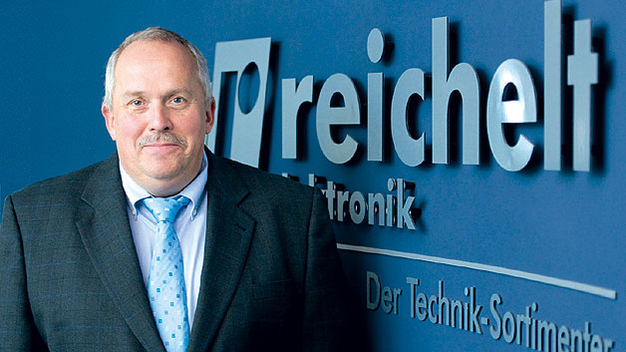Quirky German e-retailer, Reichelt may soon become an aggressive competitor to the British high street. Speaking to GrowthBusiness, Reichelt’ chief executive, Ulf Timmermann outlines the company’s plans to mirror previous German high street success stories for rapid growth in the UK.
At the helm of the €125 million business, CEO Ulf Timmermann fell in love with Reichelt as a nine year-old boy when his parents bought his his first soldering iron from the company’s catalogue. According to him, the company is a personality driven business, employing over 220 people at its German logistics centre in Sande. Aside from a good sense of humour and optimism, what separates Reichelt from the Maplins and Mousers of the world? Two words: competitive pricing.
“Most of our products can be purchased at least 20 per cent cheaper than elsewhere in the UK,” Timmermann explained. “We have very low margins as we do everything ourselves.”
From writing their own ERP software to setting up their warehouses and managing their call centres, Reichelt absorbs what can amount to high overheads by keeping it all in-house. “Back in the 90s, getting software from outside was very expensive,’ Timmermann added, explaining how the business adopted this highly cost effective in-house-first approach. “Everything we’ve done is off our own backs. Everything but the building is done by our crew,” he added.
Transitioning catalogue sales to e-retail was seamless for Reichelt, according to Timmermann, cutting out the brick-and-mortar store from their formula for larger cost savings. “The world is electronic. The internet makes it easy to reach anyone anywhere.”
Additionally, owing to high unemployment rates in northern Germany, a lot of their customer service staff are trained technicians who can drill into the specifics of product issues, what Timmermann calls “a luxury problem”.
One pricing structure
In addition to passing on cost savings to consumers, the business works on a unified price structure. “We use one pricing structure for all our products, so naturally a lot of articles can seem ridiculously cheaper in the UK because of the currency,” Sebastian Bley, Reichelt’s senior marketing manager, explained, adding, “we don’t believe in dynamic pricing just to compete with one or two local competitors.”
For example, the cheapest HDMI cable costs £4.99 at Maplin. At Reichelt, the same thing is available at £1.26, including VAT and shipping.
Made for the ‘makers movement’
Timmermann’s focus for the first phase of their UK roll-out is geared towards the ‘makers movement’ in the UK, aiming to support these growing businesses with cost efficient electronics.
“We supply business customers in the electronics and engineering sectors, from laboratories to workshops, education and IT, but we also meet the needs of the consumer audience,” according to Timmermann. However, the company’s interface suggests its enterprise focus. Compared to global behemoth Amazon, which tailors its e-commerce platform for the consumer market, Reichelt’s website is arguably too technical for the average shopper.
Translating close to 50 years of German legacy
Inspired by the success of German retail heavyweights, Lidl and Aldi, Reichelt’s ‘soft launch’ began a year ago. “We opened the box last year,” Timmermann said, referring to their English language website. “It was quite funny as we had wholly translated our German website via Google.” The company’s success in Switzerland, Austria and the Netherlands never required localised websites, making the UK market a first for the retailer. Poking fun of their own issues with translation, Reichelt’s #SupportPaul campaign online sums up the business’ sharp learning curve in breaking into the UK.
Growth plans
Reichelt’s aggressive growth plans include opening a third warehouse, a €9 million investment, at the end of April, boosting their stock to over 100,000 articles by next year. According to Timmermann, it all starts with speaking the language customers can understand. “Our website now makes a lot of sense, and we’re keen to kick off in the UK.”






